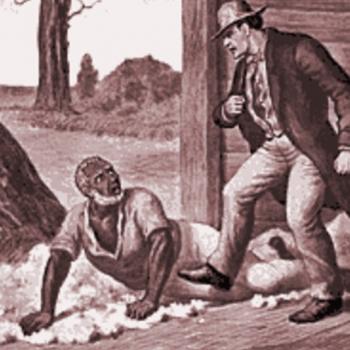Previous in Series: Just the Facts
Imagine a man, let’s call him Sam, who is a believer in astrology. Sam thinks that you can tell a lot about a person based on the date of his birth. He is fond of ascribing various personality traits and other characteristics to people based on their astrological sign, and will often make generalizations about people based on their signs, such as “Leos are arrogant” or “Scorpios are good problem solvers.” (I neither know nor care whether these specific statements are accurate according to astrology. The point is merely that astrology does make claims of this sort about groups based on their astrological sign) Many people think Sam is kind of flaky because of these beliefs, but no one would say that he is wicked or dangerous on account of them, nor would most people take offense if they heard him espouse his astrological beliefs, or feel that he should be shunned because of them.
Now consider Sam’s brother, Steve. Steve is a believer not in astrology, but racial stereotypes. He ascribes various personality traits and other characteristics to people based on their race, and will often make generalizations about people based on their race, such as “Blacks are lazy” or “Asians are good at math.” Needless to say, society does regard Steve’s belief in these racial stereotypes quite differently than we do his brother Sam’s belief in astrology. We do consider what Steve believes to be wicked and dangerous, people do take offense at his opinions when uttered, and many people do refuse to associate with Steve based on his beliefs.
What explains this difference in reaction? It is hard to see how it could be anything intrinsic in the beliefs themselves. However false are racial stereotypes, they cannot have less factual basis than stereotypes based on astrological sign.
The difference, it seems to me, is largely a function of history. It so happens that people with beliefs like Steve’s have done horrible things to other human beings and have used their racial beliefs as a justification for their actions. We therefore associate the beliefs with the actions they gave rise to, and worry that people who espouse those beliefs today will, if given the chance, engage in the same sorts of injustices. The same cannot be said for astrology. If people with certain astrological signs had enslaved and oppressed people with other astrological signs for hundreds of years, perhaps we would react to Sam as we do to Steve. Perhaps if the impact of belief in racial stereotypes was limited to the New Age section of your local bookstore, we would react to Steve the way we do Sam. But that is not how history unfolded.
This historical explanation explains, I think, some otherwise puzzling facts about what is and isn’t considered racially offensive today. It explains, for example, why it is that certain things are considered offensive when said about one group but not when said about another (a subject I discussed previously here). It also explains why certain things are considered offensive when said by members of one group but not another (imagine if a white comedian had been the author of this routine, for example (warning: lots of bad language)). And, finally, it explains why certain factual beliefs are generally considered racist while other, even closely related, beliefs are not.
But while an appeal to history may explain why certain factual beliefs are generally considered racist as a descriptive matter, it only won’t do the job of explaining racism as a moral matter. The truth is that many of the ideas associated with this past are so only contingently. The idea of “state’s rights,” for example, is to some extent associated with racism because it was invoked by defenders of slavery and segregation. Yet it is easy to imagine scenarios where the concept of state’s rights could be invoked against the actions of a racist central government, and in fact there were periods in American history where this was the case. In order to separate those ideas that are truly racist from those that have only been contingently associated with racism historically, we need some sort of principle to guide us, and this principle, unfortunately, cannot be given by history itself.
Next in Series: Race and Hatred












